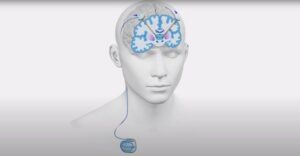How Occupational Therapy in British Columbia Made All the Difference
4 min read
The Struggles of Post-Concussion Life
A Day in the Life: Challenges Faced
Every day, individuals who have suffered a concussion encounter a myriad of challenges that drastically alter their daily experience. From the moment they wake up, they are faced with symptoms like relentless headaches, vertigo, and an acute sensitivity to light and sound. Cognitive tasks that once seemed trivial, such as concentrating or remembering simple details, now pose significant hurdles.
Emotionally, these individuals often wrestle with anxiety and depression, stemming not only from their physical discomfort but also from the uncertainty of their recovery process. Engaging in work, driving, or even indulging in hobbies that once brought happiness can feel like insurmountable challenges.
Many concussion survivors find that Traditional medical approaches do not fully address the spectrum of their experiences.
Occupational Therapy’s Unexpected Role
Meeting the Occupational Therapist: A Turning Point
For many concussion survivors, the initial meeting with an occupational therapist marks a pivotal moment in their recovery journey. Occupational therapy, often an unfamiliar field to those outside the medical community, introduces a new perspective on healing and rehabilitation. This first encounter is typically characterized by a comprehensive assessment, where the therapist listens intently to the patient’s experiences, symptoms, and the specific challenges they face in daily life.
Occupational therapists in British Columbia approach each case with a fresh perspective, acknowledging the unique nature of every concussion and its impact on the individual. This initial meeting often brings a sense of relief to patients, who may have felt misunderstood or underrepresented in their previous medical consultations.
Learning about a Holistic Approach to Recovery
Occupational therapy introduces patients to a holistic approach to recovery, one that encompasses not just the physical aspects of concussion recovery, but also the cognitive, emotional, and functional dimensions. Therapists educate patients about how daily activities, work, and personal hobbies are interconnected with their overall health and well-being.
Patients learn about the role of occupational therapy in managing everyday tasks and how modifications or adaptive techniques can make these tasks more manageable. Therapists explain the importance of cognitive exercises tailored to improve memory, concentration, and other cognitive skills. Moreover, they emphasize the significance of addressing emotional well-being, offering strategies to cope with anxiety, frustration, and depression that often accompany concussion recovery.
Embracing the Personalized Treatment Plan
The cornerstone of occupational therapy’s effectiveness lies in its personalized treatment plans. Each plan is meticulously tailored to the individual’s specific needs, goals, and lifestyle. The therapist works collaboratively with the patient to set realistic, achievable goals, whether it’s returning to work, resuming social activities, or simply managing daily tasks more efficiently.
Patients are often involved in the creation of their treatment plans, a process that fosters a sense of ownership and empowerment. The personalized approach ensures that the therapy is relevant and engaging, increasing the likelihood of patient commitment and success.
Techniques That Changed Everything
Reclaiming Cognitive Abilities
- Memory Enhancement and Brain Training
One of the key areas in concussion recovery is rebuilding cognitive abilities, particularly memory. Therapists employ various memory-training techniques and cognitive exercises that help patients regain their memory skills. These might include mnemonic devices, memory games, or specific tasks that challenge and stimulate the brain, gradually improving cognitive functions. This brain training is essential for patients to regain their ability to recall information and process thoughts effectively.
- Managing Sensory Overload
Many individuals recovering from a concussion experience heightened sensitivity to sensory input. Occupational therapists introduce techniques to help patients manage this sensory overload. This could involve gradual exposure to different levels of sensory stimuli, teaching coping strategies like deep breathing or mindfulness, and recommending practical tools such as noise-canceling headphones or tinted glasses. These methods are crucial in helping patients adapt to environments that were previously overwhelming.
Easing Back into Everyday Life and Work
- Simplifying Complex Tasks
A significant challenge post-concussion is returning to everyday activities and work. Occupational therapists assist by teaching patients how to break down complex tasks into smaller, more manageable parts. For example, a task like preparing a meal is divided into sequential steps – collecting ingredients, preparing them one by one, and finally combining them to make a dish. This approach makes tasks less intimidating and more achievable, enabling patients to gradually regain their independence and confidence.
- Adapting the Home for Safety and Accessibility
Safety at home is paramount during concussion recovery. Therapists often suggest modifications to make the home environment safer and more accessible. These might include installing grab bars in strategic places, securing rugs to prevent slips, rearranging furniture to create clear walkways, and enhancing lighting in key areas. Such adaptations are vital to prevent falls and accidents, offering patients a secure space to recover and regain their autonomy in daily life.







